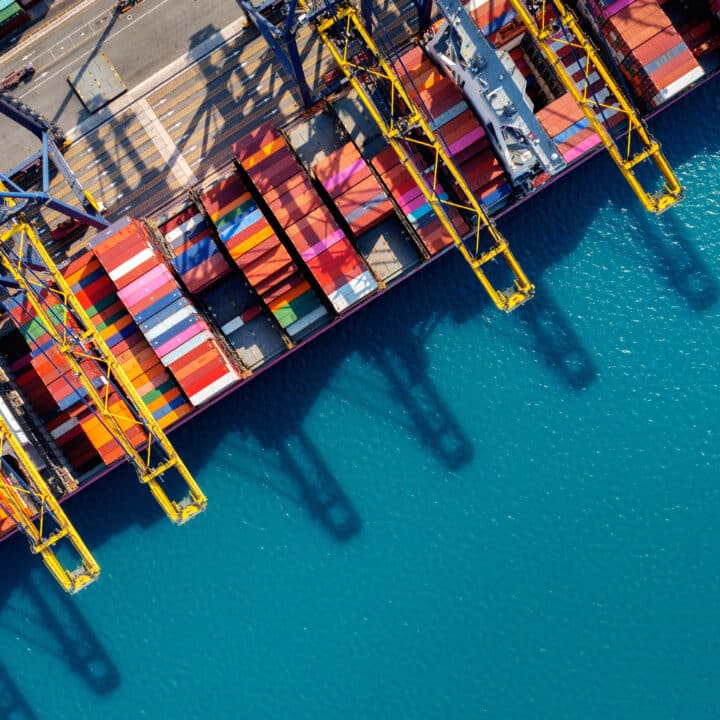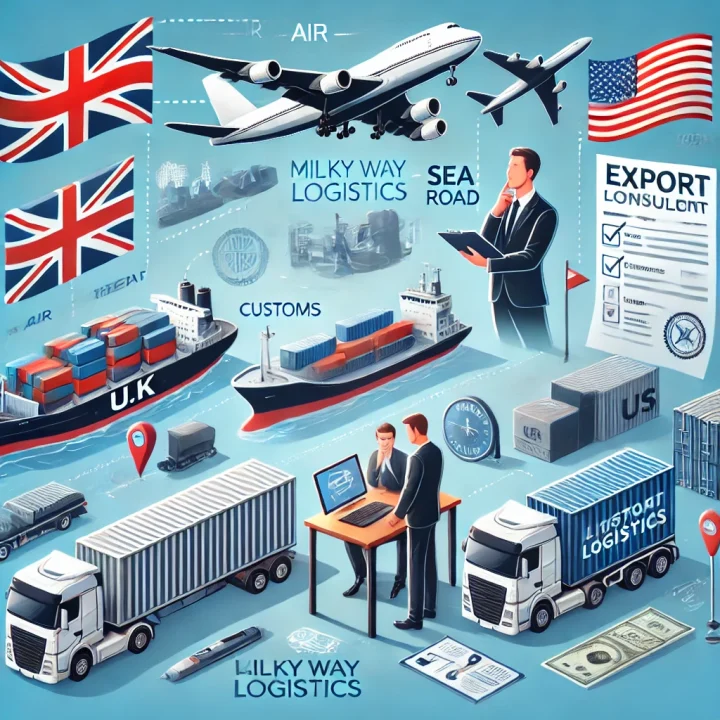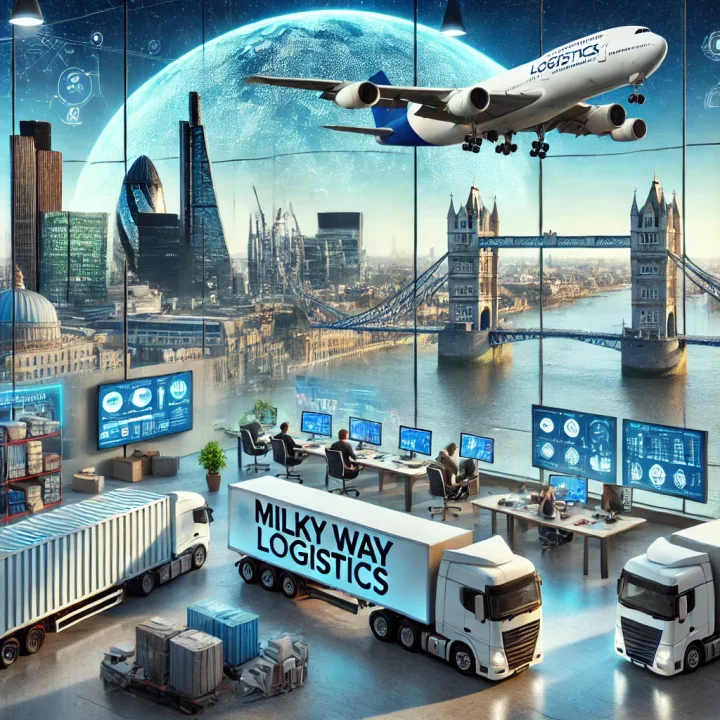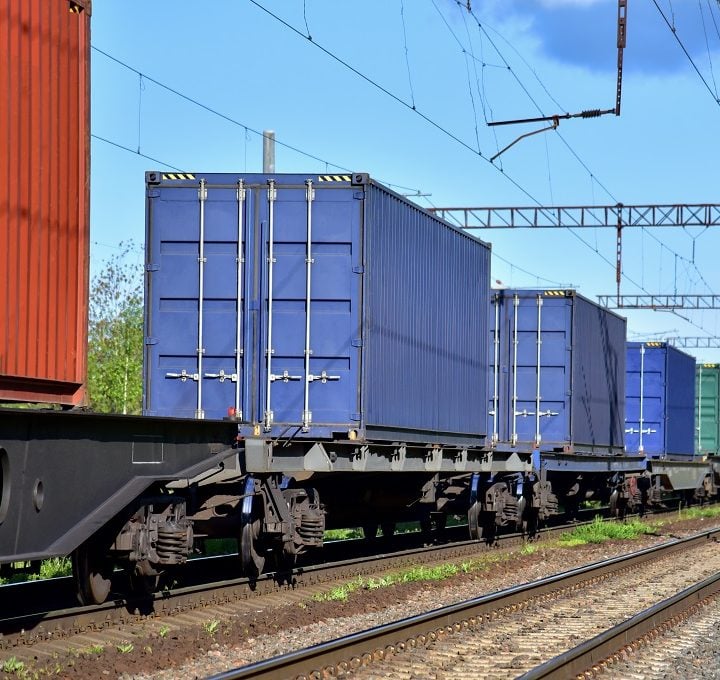 Sustainable Freight Forwarding
Sustainable Freight Forwarding
Understanding Sustainability in the Logistics and Supply Chain Industry
In the modern world, sustainability has become a crucial aspect of business operations, particularly in the logistics and supply chain industry. This sector, which is responsible for the movement, storage, and flow of goods, plays a pivotal role in the global economy. However, it also significantly impacts the environment, making sustainability an essential consideration. But what exactly does sustainability mean in this context, and how can the logistics and supply chain industry adopt sustainable practices?
Defining Sustainability in Logistics and Supply Chain
Sustainability in logistics and supply chain management refers to the adoption of practices that meet present needs without compromising the ability of future generations to meet their own needs. This involves balancing economic growth, environmental protection, and social responsibility. In practical terms, it means implementing strategies that reduce environmental impact, enhance social well-being, and maintain economic viability.
Key Elements of Sustainability in Logistics and Supply Chain
- Environmental Responsibility:
- Emission Reduction: Implementing measures to reduce greenhouse gas (GHG) emissions, such as optimizing routes, using fuel-efficient vehicles, and adopting alternative fuels.
- Resource Efficiency: Minimizing waste and promoting recycling, using energy-efficient technologies, and reducing water and energy consumption.
- Sustainable Packaging: Utilizing eco-friendly packaging materials and reducing packaging waste.
- Economic Sustainability:
- Cost Efficiency: Streamlining operations to reduce costs while maintaining service quality in sustainable freight forwarding.
- Long-term Planning: Investing in technologies and practices that provide long-term benefits and savings, even if they require higher initial investments.
- Social Responsibility:
- Labor Practices: Ensuring fair labor practices, safe working conditions, and respecting workers’ rights.
- Community Engagement: Contributing to the well-being of local communities through initiatives like local sourcing, charitable activities, and creating job opportunities.
- Consumer Health and Safety: Ensuring that products are safe for consumers and that supply chain practices do not harm public health.
Strategies for Achieving Sustainability
- Green Transportation and sustainable freight forwarding:
- Alternative Fuels: Transitioning to vehicles powered by electricity, hydrogen, or biofuels to reduce reliance on fossil fuels.
- Vehicle Efficiency: Investing in newer, more fuel-efficient vehicles and maintaining them regularly to ensure optimal performance.
- Optimized Logistics in sustainable freight forwarding:
- Route Optimization: Using software to determine the most efficient routes, reducing fuel consumption and emissions.
- Consolidation: Combining shipments to maximize vehicle load and reduce the number of trips.
- Energy-Efficient Warehousin in sustainable freight forwardingg:
- Green Building Practices: Designing warehouses with energy-efficient lighting, heating, and cooling systems.
- Automation: Implementing automated systems to improve efficiency and reduce energy usage.
- Sustainable Sourcing in freight forwarding:
- Supplier Collaboration: Working with suppliers who adhere to sustainable practices and standards.
- Local Sourcing: Reducing transportation distances by sourcing materials and products locally.
- Technology Integration in sustainable freight forwarding:
- IoT and Big Data: Utilizing Internet of Things (IoT) devices and big data analytics to monitor and optimize supply chain operations.
- Blockchain: Implementing blockchain technology to improve transparency and traceability in the supply chain, ensuring ethical and sustainable practices.
Benefits of Sustainability in Logistics and Supply Chain
Environmental Impact: Reducing carbon footprint and conserving natural resources, which helps combat climate change.
Economic Advantage: Lowering operational costs through efficiency gains and potentially accessing new markets and customers who value sustainability.
Social Good: Enhancing the quality of life for workers and communities, and maintaining a positive public image.
Sustainability in logistics and supply chain management is not just an ethical imperative but also a strategic advantage. By integrating environmental, economic, and social considerations into their operations, companies can achieve long-term success and resilience. As consumer awareness and regulatory pressures increase, the demand for sustainable logistics and supply chain practices will continue to grow. Businesses that proactively embrace sustainability will not only contribute to a healthier planet but also secure their position as leaders in a rapidly evolving industry.
Sustainable Freight Forwarding: A Spotlight on Milky Way Logistics
As the global logistics industry grapples with the pressing need to reduce its environmental footprint, the concept of sustainable freight forwarding has gained unprecedented importance. This evolution is driven by growing awareness of climate change, stringent regulatory requirements, and the increasing demand from consumers and businesses for greener supply chain solutions. One company at the forefront of this transformation in the United Kingdom is Milky Way Logistics, a London-based freight forwarding firm committed to low-emission logistics and sustainable freight services.
The Importance of Sustainable Freight Forwarding
Freight forwarding involves the coordination and shipment of goods across various modes of transport, including air, sea, rail, and road. Traditionally, this sector has been a significant contributor to greenhouse gas (GHG) emissions due to the reliance on fossil fuels. However, sustainable freight forwarding aims to mitigate these impacts through innovative practices and technologies that reduce carbon footprints and promote environmental stewardship.
Key strategies in sustainable freight forwarding include:
- Optimizing Routes and Loads: Efficient route planning and load optimization help minimize fuel consumption and emissions.
- Adopting Cleaner Fuels: Using alternative fuels such as biofuels, electricity, and hydrogen can significantly reduce GHG emissions.
- Investing in Energy-Efficient Vehicles: Modern, fuel-efficient vehicles and electric trucks contribute to lower emissions.
- Implementing Smart Logistics Technologies: Advanced tracking, IoT devices, and AI can enhance efficiency and reduce unnecessary trips.
- Promoting Multimodal Transport: Combining various transport modes can reduce reliance on high-emission methods, like air freight, in favor of more sustainable options like rail and sea.
Milky Way Logistics: Pioneering Sustainable Practices
Milky Way Logistics has established itself as a leader in sustainable freight forwarding by embedding sustainability into its core operations. Here’s how the company is making a difference:
Commitment to Low-Emission Logistics
Milky Way Logistics prioritizes reducing its carbon footprint by embracing low-emission logistics. The company has invested in a fleet of energy-efficient vehicles, including electric and hybrid trucks, which are used extensively for last-mile deliveries within London and beyond. These vehicles not only lower emissions but also contribute to reducing noise pollution in urban areas.
Adoption of Cleaner Fuels
In its quest to minimize environmental impact, Milky Way Logistics has integrated the use of cleaner fuels such as biodiesel and compressed natural gas (CNG). By transitioning away from traditional diesel, the company has made significant strides in cutting down its GHG emissions.
Technological Innovations
Leveraging cutting-edge technology is central to Milky Way Logistics’ sustainable approach. The company employs advanced route optimization software, which uses real-time data and AI to plan the most efficient routes, thus reducing fuel consumption and emissions. Additionally, the use of IoT devices for tracking shipments ensures transparency and efficiency throughout the supply chain.
Multimodal Transport Solutions
Milky Way Logistics promotes the use of multimodal transport solutions, combining rail, sea, and road transport to minimize the carbon footprint. By strategically using rail and sea routes for long-haul shipments and reserving road transport for short distances, the company significantly reduces its reliance on high-emission transport modes.
Green Warehousing
Sustainability at Milky Way Logistics extends beyond transport to its warehousing operations. The company has invested in green warehousing practices, including the installation of energy-efficient lighting, solar panels, and advanced climate control systems. These measures help reduce energy consumption and lower the overall environmental impact of its logistics operations.
Milky Way Logistics exemplifies how freight forwarding companies can transition towards more sustainable practices. By focusing on low-emission logistics, cleaner fuels, technological innovations, multimodal transport solutions, and green warehousing, the company not only reduces its environmental footprint but also sets a benchmark for the industry. As the logistics sector continues to evolve, the sustainable practices pioneered by Milky Way Logistics provide a roadmap for others to follow, highlighting that environmental responsibility and operational efficiency can go hand in hand.
 Sustainable Freight Forwarding
Sustainable Freight Forwarding












